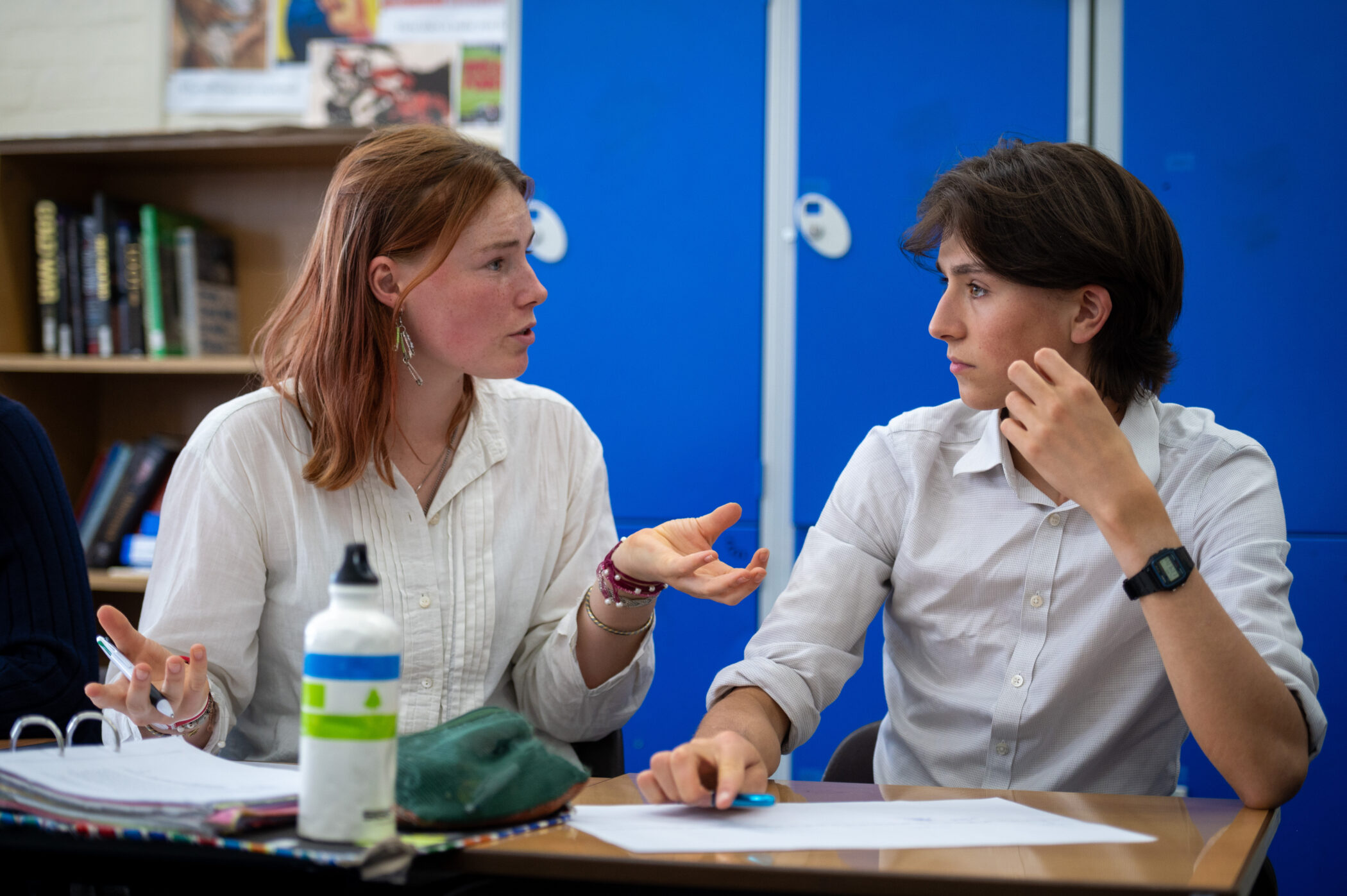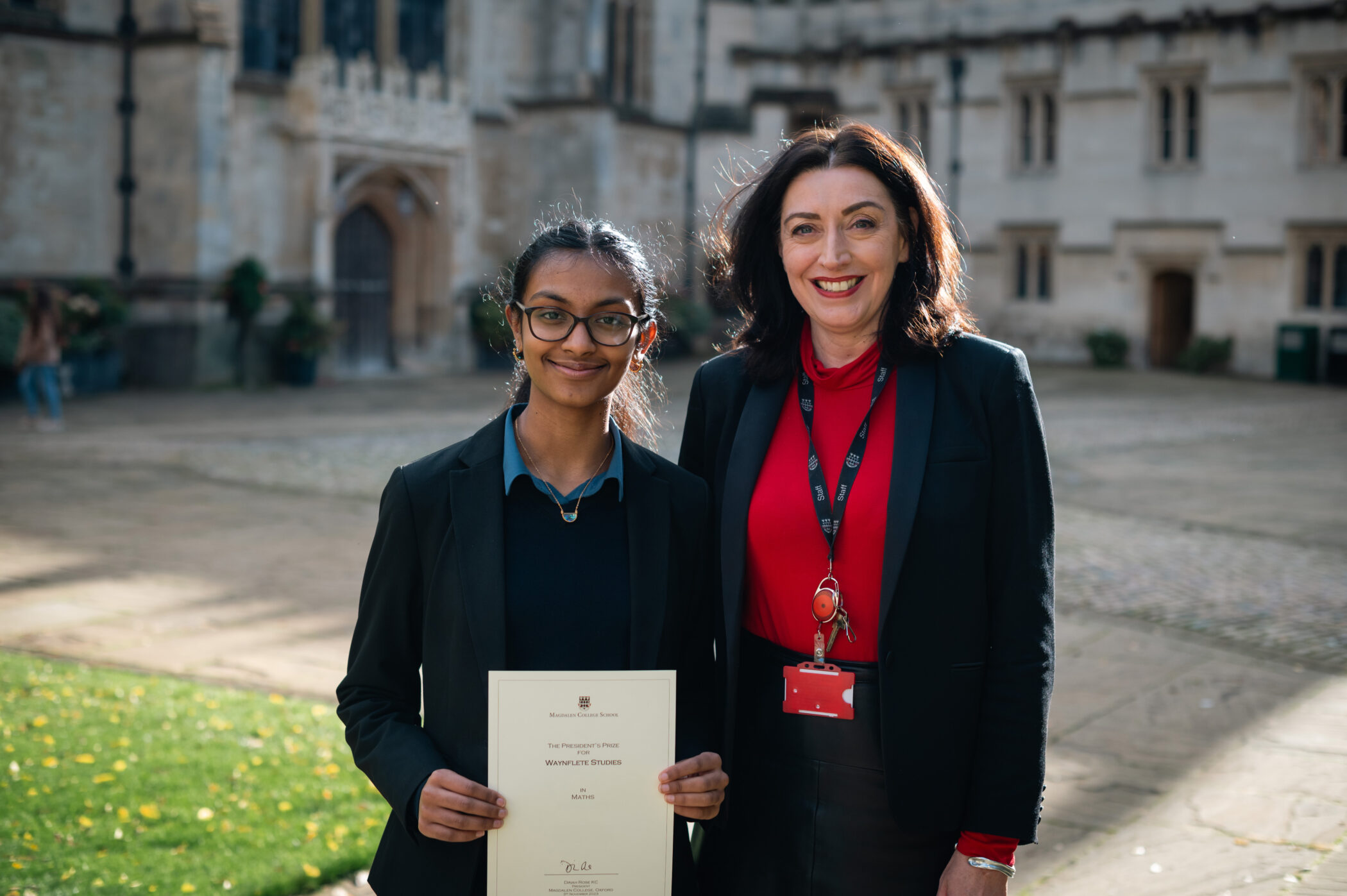A Level German
German is an extremely popular global language and there are many reasons why you might choose to study German in Sixth Form at MCS.
As Germany has the biggest economy in Europe, you might wish to boost your job opportunities with high-profile companies such as Siemens, BMW, or Bayer. Perhaps you aspire to work in Berlin, aka ‘the Silicon Valley of Europe’, a vibrant international city that is home to a large number of cutting-edge tech companies. You might wish to combine learning German with the study of Biology, Chemistry, or Physics, since German is the second most commonly used scientific language in the world and many research fellowships at prestigious German universities are available to scientists from abroad. Possibly you have an interest in music, theology, history, or philosophy, and wish to engage directly with the works of Mozart, Bach, Luther, Barth, Kafka, Mann, Kant, or Nietzsche.
Whatever your motivation, you will find learning German at MCS to be an intellectually exciting and personally rewarding experience.
The Edexcel A-Level German syllabus offers a fresh and rewarding approach to learning this modern foreign language. It offers pupils engaging courses that will allow them to develop their confidence and acquisition of a language, and prepare them well for university. As a department, we put an emphasis on authentic language and culture – from the news media, radio, television, the internet, film, and literature.
Pearson Edexcel A Level syllabus for German enables students to develop an advanced level knowledge and understanding of the German language, the culture of Germany and other German-speaking countries, as well as practical and valuable language and transferable study skills. It prepares them for higher education and enhances their employability profile.
Inspiring and engaging themes The qualification features familiar and popular themes as well as some new content that provides clear links to some of the most fundamental and interesting aspects of the German culture, the countries were German is spoken and their communities.
Popular literary texts and films The curriculum offers a rich choice of literary texts and films that includes contemporary and more classical titles, together with authentic source materials from Germany and the wider German-speaking world.
Rewards creativity The assessments place an emphasis on spontaneity and grammar, as well as providing plenty of opportunities for students to apply their knowledge independently and creatively. Clear mark schemes encourage students to develop ideas, use language to persuade and analyse, and give critical responses in their writing and speaking.
Examination arrangements and course content of Pearson Edexcel A Level German
Listening, Reading, and Translation (40%)
Students will be assessed on their understanding of spoken and written German from a variety of types of authentic texts and listening material, as well as their ability to translate accurately from German into English.
Written Response to Works and Translation (30%)
Students must study two discrete German works from a range of novels, plays, films, and a series of short stories. The content of the translation will be a passage based on one of the four themes.
Speaking (30%)
Students complete two tasks: a discussion of a theme from the exam specification and a presentation and discussion of an individual research project.
Study content includes the study of a German speaking movie and one work of literature, or two works of literature alongside discussion of topics relevant to the culture where the language is spoken. Pupils are expected to select and present information, and to organise their arguments and ideas logically. They will learn to research and discuss aspects of the history, current affairs or cultures of German-speaking countries.
Students choose an oral topic for U6th according to their interests, which they research independently and discuss in their weekly oral lessons with our dedicated German Language Assistant.
In preparation for Sixth Form we suggest that you visit the websites below on a regular basis, watch two or three of the films, and read one of the suggested texts.
| Suggested Preparation | ||
| Websites | Deutsch lernen mit Jojo | A fairly easy soap-opera story which has lots of very short episodes. Good for keeping up listening skills. |
| Langsam gesprochene Nachrichten | Daily news bulletins read clearly and slowly in German, with transcripts. | |
| Spiegel | Current affairs. | |
| Films | Die fetten Jahre sind vorbei (The Edukators) | A German-Austrian crime drama following three young anti-capitalist activists who call themselves ‘the Edukators’, invade upper-class houses, rearrange the furniture, and serve notice to ‘fatcats’ that their days are numbered. |
| Der Ballon (Balloon) | East Germany, 1979. After initially failing to flee from the East to the West in a self-built hot-air balloon, two families struggle to make a second attempt, while the East German State Police are chasing them. | |
| Almanya – Willkommen in Deutschland (Welcome to Germany) | An analysis of the integration of Turkish culture in Germany follows the story of a family headed by patriarch Hussein, who emigrated to Germany in the ’60s. | |
| Sophie Scholl – Die letzten Tage (The Final Days) | In 1943, student activist Sophie Scholl and fellow members of the White Rose resistance group work tirelessly to distribute anti-war and anti-Nazi propapanda in Munich. During one such mission, the Gestapo take her and her brother into custody; six days later, Sophie meets her fate. | |
| Willkommen bei den Hartmanns (Welcome to Germany) | Recently-retired teacher Angelika decides, against her sceptical husband Richard’s will, to take in a refugee. Soon afterward, young Nigerian Diallo moves into the Hartmann home, launching a whirlwind of complications ensue. These events not only disrupt the lives of Angelika and Richard’s adult children Philip and Sophie, but they also put their own marriage as well as Diallo’s chances of integration to the test. | |
| Books | MacGregor, Neil | Germany: Memories of a Nation |
| Clark, Christopher | Iron Kingdom: The Rise and Downfall of Prussia, 1600-1947 | |
| Kolinsky, Eva (ed.) | The Cambridge Companion to Modern German Culture A collection of essays | |
| Boyle, Nicholas | German Literature: A Very Short Introduction | |
| Kampfner, John | Why the Germans Do It Better | |
| Podcasts and Radio Features | Germany: Memories of a Nation (podcast series by Neil MacGregor in English) | |
| BBC Radio 4 programmes on German history and culture | ||
| A selection of plays and readings celebrating a diverse range of German literature | ||
| Germany in Europe | ||
| “Comrade Africa” – How Communist East Germany tried to influence African countries via radio during the Cold War | ||
| Music | Goethe Institut – Music Video of the Month | |
 MCS ranks among the top independent secondary schools, and in 2024 was awarded Independent School of the Year for our contribution to social mobility.
MCS ranks among the top independent secondary schools, and in 2024 was awarded Independent School of the Year for our contribution to social mobility.

 28 of our pupils achieved 10 or more 8 or 9 grades in 2024.
28 of our pupils achieved 10 or more 8 or 9 grades in 2024.
 In 2023-24, MCS received over £448,000 in donated funds.
In 2023-24, MCS received over £448,000 in donated funds.

